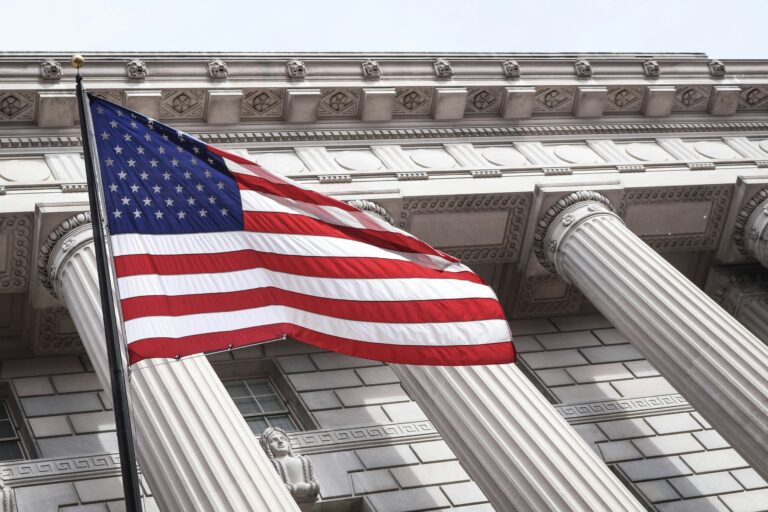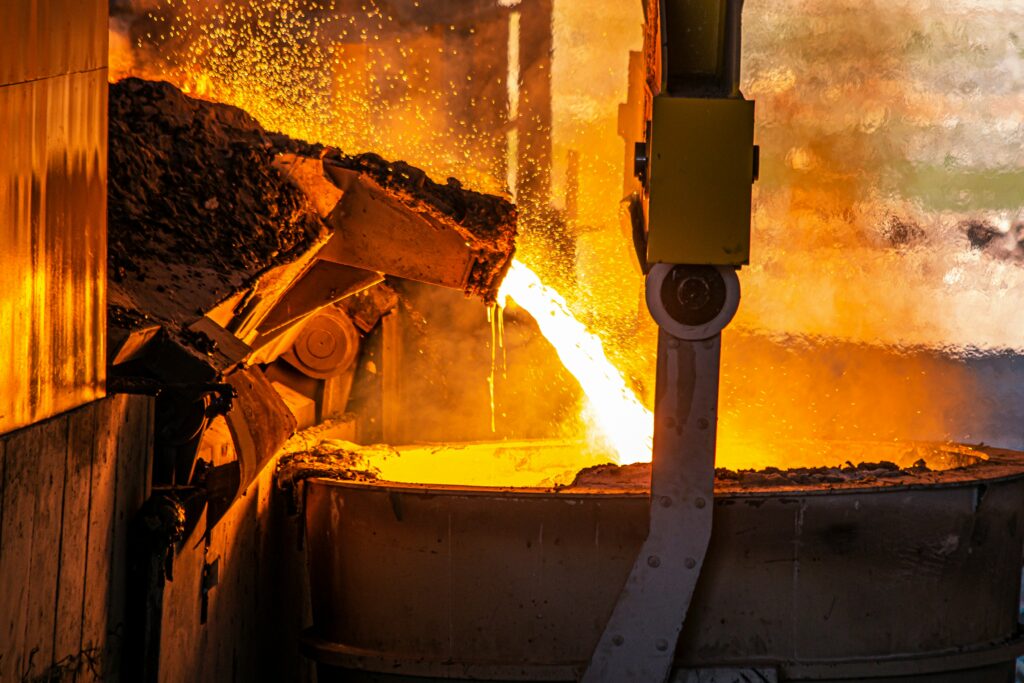This article is part of Raw Materials Insights, a new series on the MATVISION blog where we invite external experts to share their perspectives and provide a broader, global understanding of the challenges shaping the raw materials sector.
The world is being disrupted right in front of our eyes, and nowhere is this more evident than in the field of raw materials as the US has now assumed the role of “Geopolitical Destabiliser in chief”. Beyond the doubtful concepts of buying Greenland, making Canada the 51st American state or the uncertain prospect of striking a deal with Ukraine on seemingly rare earth metals, one very real outcome is the imposition of tariffs on steel and aluminium.
While Donald Trump is flipping back and forth, having temporarily halted a plan to double US tariffs on Canadian steel and metal imports to 50%, he is now targeting Europe. Canada is also facing 25% tariffs, specifically on its steel and aluminium. And this may still change as the US President has shown extreme volatility in such trade decisions.

Tariffs and Turbulence: How Should Industry React?
The question for everyone in the business is therefore : How to cope ? And one obvious ancillary question will be : How to technologically position yourself in the face of steel and aluminium tariffs within an increasingly instable world ?
Geopolitical instability will force companies active in these metal businesses to implement strategies that balance resilience, adaptability, and innovation in materials sourcing, supply chain management, and manufacturing processes.
Tariffs on steel and aluminium make raw materials imports more expensive in the country imposing such tariffs, the US in the present case. This pushes companies to seek cost-saving alternatives creating an environment where advanced sorting and refining technologies can deliver high-tech recycling solutions to produce locally sourced materials at lower costs.
Tech-Powered Recycling as Strategic Leverage
Non-ferrous metal separation technologies relying on cutting edge recognition sensors and AI-powered sorting can help maximize the production of steels and aluminium penalized by higher import tariffs, thereby optimizing the value extracted from end-of life metal streams. The result will obviously bring about Financial Value but, more importantly in the current geopolitical turmoil, Strategic Value.
Contrarily, in the countries affected by the tariffs, such as Canada and Europe, domestic metal production and transformation industries will suffer. Notably in the steel sector where the EU can expect a growing volume to be dumped from world markets and to be deflected from the US to Europe.
Europe’s Energy Burden and Policy Response
In the case of Europe, the price of energy is a major structural challenge, severely decreasing the competitiveness of heavy industries such as steel and aluminium. As Mario Draghi noted in his 2024 report on the future of European competitiveness:
“The energy landscape has changed irreversibly with the Russian invasion of Ukraine and the resulting loss of pipeline natural gas. While energy prices have fallen considerably from their peaks, EU companies still face electricity prices that are 2–3 times those in the US, and natural gas prices paid are 4–5 times higher.”
On March 19, 2025, Europe published its European Steel and Metals Action Plan on the heels of the Clean Industrial Deal and the Action Plan for Affordable Energy, announcing a range of new measures. The focus is on the key competitiveness challenges of lowering energy costs, creating lead markets for low-carbon products, increasing circularity, levelling the international playing field, creating quality jobs and leveraging investments. To reinforce the view, EU policymakers met in Brussels during the third week of March 2025 to focus on two endangered EU industries : automobile plus steel and metals.

MATVISION: Turning Waste into Strategic Value
While steel and aluminium making are very energy intensive, recycling aluminium uses 95% less energy than producing aluminium from raw materials while also saving 97% of greenhouse gas emissions produced in the primary production process. This is where a company such as MATVISON can provide a positive contribution.
By providing integrated robotic solutions leveraging a multi-sensors and multi-outputs sorting system, MATVISION’s smart sorting solution can extract economic and strategic value from waste. Moreover, MATVISION’s diverse skill set encompassing sensor integration, automation and software as well as mechanical Integration provides a disruptive turnkey solution.
It may just be the right answer to support the European Steel and Metals Action Plan while alleviating some of the steel and aluminium tariff pressure !
About This Contribution
This article is part of Raw Materials Insights, a new series on the MATVISION blog where we invite external experts to share their perspectives and provide a broader, global understanding of the challenges shaping the raw materials sector.
This week’s insight was authored by Philippe Giaro of the University of Liège, who draws on over 40 years of international experience in mineral exploration, engineering, and corporate development across Africa, the Americas, Europe, the Middle East, and China. His contribution offers a deep and timely analysis of the current geopolitical and industrial dynamics affecting critical raw materials.
Make sure to follow us on LinkedIn or subscribe to our newsletter for more.
Philippe Giaro obtained a B.Sc. in geology from McGill University in 1984 (Montreal, Canada) and a M.Sc. in geological sciences from the Université de Liège in 2014 (Liège, Belgium). Mr. Giaro has 40 years of experience in mineral exploration, engineering and corporate development for various commodities in Africa, North and South America, Europe, the Middle East and China. From 1984 to 2000, he held various positions as geologist and project manager for junior and major mining companies such as Cogema (now Orano) and Falconbridge (now Glencore). Between 2000 and 2005, he worked for a Belgian engineering company, TPF Basse Sambre and, in 2005, was appointed CEO of SearchGold, a Canadian junior explorer. During this period, he was responsible for the construction of a pyrolysis waste treatment unit in Iceland and participated in the development of the first commercial gold mine in Gabon. In 2008, Mr. Giaro founded Golden Share Mining Corporation and, following the growth of several gold projects in Canada, merged with a Chinese mining group. Since 2017, Mr. Giaro has held the position of Senior Research Officer for the GeMMe (Georesources, Mineral Engineering and Extractive Metallurgy) research group at the University of Liège.
- Geopolitics meets recycling: Turning tariffs into opportunity ? - 24 March 2025